Reppy Institute for Peace and Conflict Studies
World in Focus: Global Responses to Trump

Join us on Jan. 27 to talk about the Trump administration's imperial actions and what they mean for the rest of the world.
Rebecca Slayton
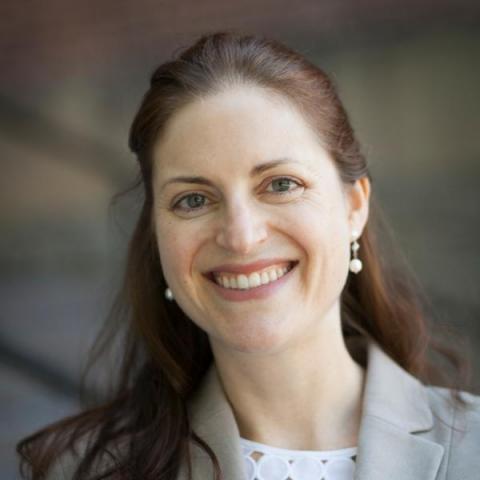
Director, Reppy Institute for Peace and Conflict Studies
Additional Information
Program
Role
- Faculty
- PACS Core Faculty
- PACS Director
- PACS Steering Committee
- PACS Minor Field Instructor
- Einaudi Faculty Leadership
Contact
Email: rs849@cornell.edu
Phone: 607-255-8914
Bukovina: The Life and Death of an East European Borderland

By Our Faculty
Bukovina, when it has existed on official maps, has always fit uneasily among its neighbors. The region is now divided between Romania and Ukraine but has long been a testing ground for successive regimes, including the Habsburg Empire, independent and later Nazi-allied Romania, and the Soviet Union, as each sought to reshape the region in its own image.
Book
Additional Information
Program
Type
- Book
Publication Details
Publication Year: 2025
Durand Line: Resolved for Pakistan, Ambiguous for Afghanistan
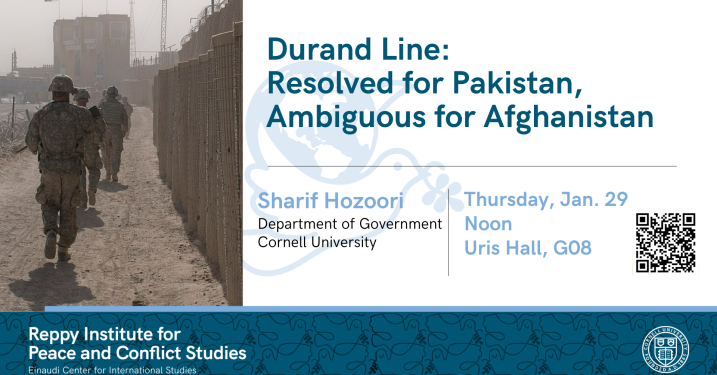
In this chapter, I am examining the Pashtun nationalist claims in the context of the Afghanistan government’s historical resistance to officially recognizing the Durand Line.
Nonviolent Discipline Is Helping Turn the Tide on ICE
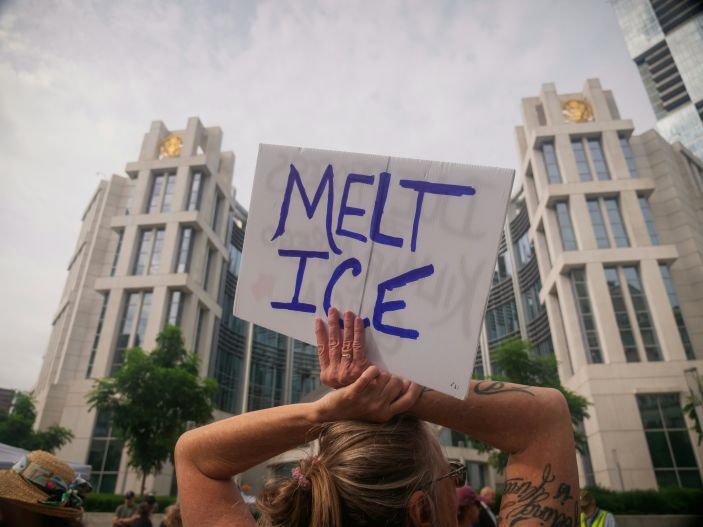
David Cortright, PACS
Despite brutal provocation, the people of Minneapolis have been courageous and remarkably nonviolent, embodying the spirit of Martin Luther King Jr.
Additional Information
Funding for Faculty
Apply now for Einaudi research support!
Proposals are due March 16 for seed grants and new targeted support for early-career faculty with research in international studies.
Additional Information
World in Focus: Global Responses to Trump

January 27, 2026
4:00 pm
Uris Hall, G08
Join Einaudi Center experts for World in Focus Talks on global events in the news and on your mind. Our faculty's research and policy insights put the world in focus.
This year we’re hosting informal campus discussions on many Tuesday afternoons. This week’s topic:
The United States helped create the United Nations to protect the sovereignty of independent countries. Now the Trump administration is setting the tone for superpowers with imperial ambitions by waging economic war against democratic allies, violating long-standing treaties, and holding out the possibility of using military force.
What do these unprecedented actions mean for the rest of the world? How are states and peoples in different regions responding? And what may happen if tensions continue to escalate?
***
Featured Faculty
Agnieszka Nimark (PACS) | Affiliated ScholarMagnus Fiskesjö (EAP, PACS, SEAP) | AnthropologyAlexandra Blackman (SWANA) | GovernmentSeema Golestaneh (SWANA) | Near Eastern StudiesIrina Troconis (LACS) | Romance StudiesKenneth Roberts (LACS) | GovernmentPeter Katzenstein (IES, PACS) | Government
***
Conversations Matter at Einaudi
This conversation is hosted by the Mario Einaudi Center for International Studies and its regional and thematic programs. Find out what's in store for students at Einaudi!
Additional Information
Program
Einaudi Center for International Studies
Reppy Institute for Peace and Conflict Studies
East Asia Program
Southeast Asia Program
Latin American and Caribbean Studies
Institute for African Development
Institute for European Studies
South Asia Program
Migrations Program
Southwest Asia and North Africa Program
Book Talk - ILR Global Labor and Work Workshop - From Popular Front to Cold War: The Interracial Left and the International Workers Order, 1930–1954
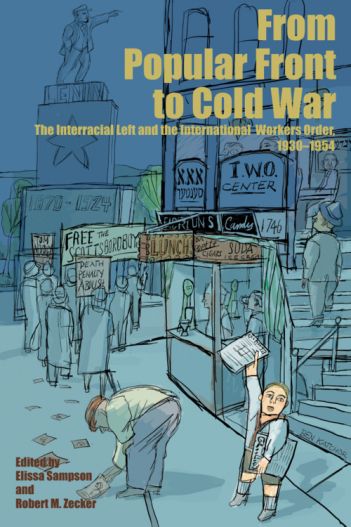
February 18, 2026
4:00 pm
Ives Hall, Doherty Lounge, 281 Faculty Wing
The Jewish Studies Program invites you to come join our colleagues at the School of Industrial and Labor Relations (ILR) Global Labor and Work Workshop in welcoming a new book from Cornell University Press at a book launch with Elissa Sampson and Robert Zecker. The Global Labor and Work series has a longstanding tradition of hosting panels and individual presentations that foster rich and stimulating discussions at the cutting edge of the study of work, labor, and employment—all within a collegial setting.
The room capacity of Doherty Lounge is limited to 36.
Co-editors Elissa Sampson and Robert Zecker will discuss their new book, "From Popular Front to Cold War," which tells the story of the International Workers Order (IWO). Originally a left-wing Yiddish-speaking fraternal organization founded in 1930 as a mutual benefit insurance society, the IWO uniquely became interracial and multiethnic, championing early civil-rights campaigns, battling for labor unions and needed social reforms during the Great Depression and World War II, while pushing the boundaries of multiracial social democracy. Although the postwar Red Scare sentenced the IWO to liquidation in 1954, this organization remains a vital reminder in our current distressing times that another world was possible.
At its height, the pro-Soviet IWO had almost 200,000 members drawn from a broad ethnic and racial spectrum of the working class--Jews, Blacks, Poles, Slovaks, Italians, Hispanics, and others. It operated summer camps, published foreign-language newspapers, and supported a wide range of cultural activities; its multilingual archives are housed at Cornell's Kheel Center. An early advocate for the US's entry into World War II, the IWO was ahead of its time in championing the nascent Civil Rights movement and Black leadership. Its leaders and activists included Clara Lemlich Shavelson, Paul Robeson, Langston Hughes, Louise Thompson Patterson, and Vito Marcantonio. The IWO was declared a subversive organization during the Cold War although its membership was not connected to the Communist Party. Its legacy as a model for working-class cooperation across racial and ethnic differences endures to this day.
Dr. Elissa Sampson is an urban geographer who studies how the past is actively used to create new spaces of migration, memory, heritage and activism. Her life-long interest in migration, diaspora, re-diasporization and immigrant culture has been pursued in the Lower East Side, Brooklyn, Jerusalem, Paris and elsewhere and points to the dynamic interactions among diasporas in shared spaces/places. She has worked extensively with Cornell University’s, Kheel Center archives on the International Workers Order (IWO) and is responsible for its partial digitization. She co-organized a public, online academic conference, “Di Linke,” (the Left) based largely on its Jewish Section holdings: a weeklong series of webcasts in December 2020 attracted more than six hundred attendees. She is a Research Associate in Cornell’s Jewish Studies Program where she has taught labor and gender history, including the 1911 Triangle Shirtwaist Fire, its memorialization, and its relationship to current activism. She has published in the fields of urban geography and memory studies as well as on the IWO and is the co-editor of "From Popular Front to Cold War: The Interracial Left and the International Workers Order, 1930–1954" from Cornell University Press.
Robert M. Zecker is a professor of history at Saint Francis Xavier University, Nova Scotia, Canada, where he teaches courses in race, immigration, social movements, and US history. His research includes immigration, radicalism, and the popular culture of immigrants on the left. He is the author of many articles in journals such as the Journal of American Ethnic History, American Communist History, the Journal of Popular Culture, and the Journal of Transnational American Studies. He is the author of four books, most recently “A Road to Peace and Freedom”: The International Workers Order and the Struggle for Economic Justice and Civil Rights, 1930–1954 (Temple University Press, 2018). He is currently writing a history of the workers’ schools of the CPUSA.
Sponsors: Jewish Studies Program, ILR School Global Labor and Work
Co-sponsors: Mario Einaudi Center for International Studies, Reppy Institute for Peace and Conflict Studies, Department of Government, Institute for Comparative Modernities, Department of Anthropology, Feminist, Gender, & Sexuality Studies Program
Additional Information
Program
Einaudi Center for International Studies
Reppy Institute for Peace and Conflict Studies
Institute for African Development Spring Symposium: Artificial Intelligence and the Global South: Perils, Pitfalls and Potential

April 23, 2026
9:00 am
401 Warren hall
April 22-23, 2026 401 Warren Hall Artificial intelligence (AI) is viewed by some as having great promise, while others view the arrival of this novel technology with skepticism or concern. AI is certainly having a significant impact in many arenas of life. What are the specific implications of AI for people living in the Global South? This conference will examine the specific social, political, environmental and economic impacts of AI in and for the Global South, taking a holistic, perspective that considers the historical, socio-cultural, environmental and political-economic context in which AI is embedded in and entangles with across the Global South. Keynote speakers from a range of disciplines will focus on specific themes.
Additional Information
Program
Einaudi Center for International Studies
Reppy Institute for Peace and Conflict Studies
Institute for African Development
Hemispheric Internment and Its Afterlives in Nikkei (2011)
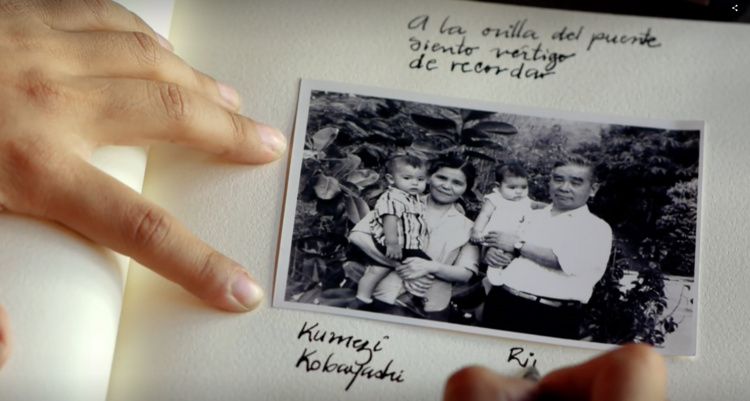
February 3, 2026
12:20 pm
Uris Hall, G08
: Although the internment of Japanese Americans during World War II following the invocation of the Enemy Aliens Act has been well documented, the parallel experiences of Latin Americans of Japanese descent remain far less examined. Like their U.S.-based counterparts, these communities were removed from their homes, stripped of property, and interned in U.S.-run camps. In Venezuela, rather than being interned abroad, Caracas’ Japanese community was confined to a camp in Ocumare del Tuy—a story almost entirely erased from both Venezuelan historical memory. This history raises urgent questions about whose experiences are recorded, whose are forgotten, and which forms of memory gain recognition. In this talk, Elizabeth Barrios explores these questions through Nikkei (2011), the largely overlooked documentary by filmmaker Kaori Flores Yonekura, which traces her own family’s experiences and illuminates a hidden chapter of Venezuelan and hemispheric history. The film not only preserves personal and collective memory but also challenges us to rethink the boundaries of national and transnational histories, exposing the racial and political logics that made such internments possible. These questions are particularly urgent today, as the Enemy Aliens Act has been invoked once more (this time specifically targeting Venezuelans), revealing how the mechanisms of exclusion and surveillance from the past continue to resonate in the present.
Additional Information
Program
Einaudi Center for International Studies
Latin American and Caribbean Studies
Reppy Institute for Peace and Conflict Studies
